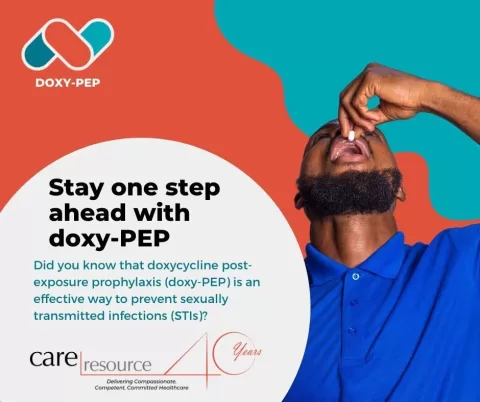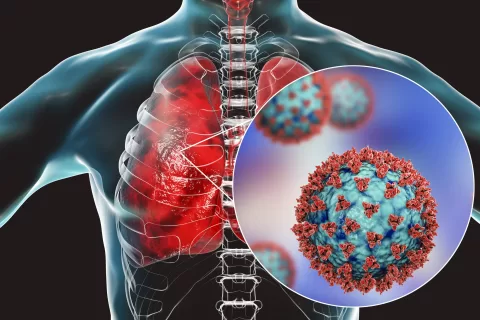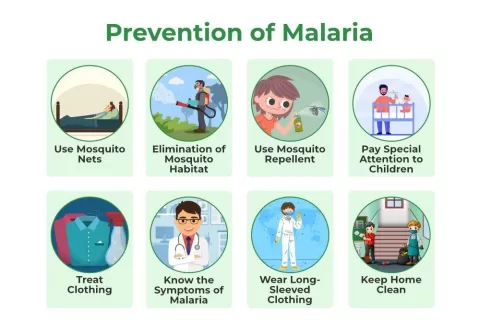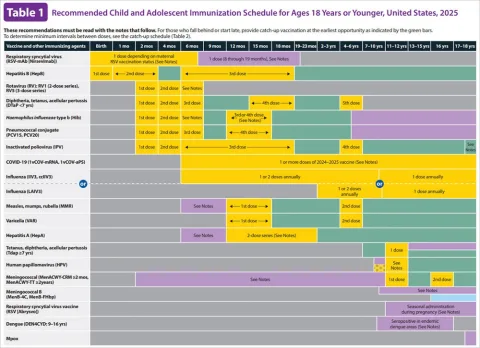VHH antibodies, known for their unique structure and function, represent a groundbreaking advancement in antibody development aimed at combating infectious diseases. Recently highlighted in CEPI news, these innovative antibodies are part of an exciting $43.5 million agreement with AstraZeneca, aimed at creating more accessible and cost-effective monoclonal antibody treatments. Engineered to target multiple strains of pandemic influenza, such as H1, H3, H5, and H7, VHH antibodies could pave the way for immediate medical interventions during outbreaks. Unlike traditional monoclonal antibodies, VHHs do not require light chains, enhancing their efficacy and production efficiency. As global health challenges continue to evolve, the potential of VHH antibodies to provide rapid protection against viral diseases is drawing significant attention from the scientific community and pharmaceutical industry alike.
In the realm of immunotherapy, the term ‘single-domain antibodies’ often arises, referring to a unique class of antibodies distinguished by their small size and ability to target pathogenic threats effectively. These single-domain molecules, such as VHHs extracted from camelids, are gaining traction in antibody development, especially in the context of tackling pandemic influenza. With their capability to enhance treatment accessibility through reduced manufacturing costs, they are positioned as a plausible alternative in the fight against infectious diseases. This novel approach underscores a promising shift in how we address viral outbreaks, aligning with global initiatives like the CEPI financing agreement with AstraZeneca to explore innovative protective measures. As research continues, the adaptability of these antibodies suggests they could play a critical role in both immediate and long-term public health strategies.
Understanding VHH Antibodies in Pandemic Influenza
VHH antibodies, also known as single-domain antibodies, are derived from camelids and are distinct from traditional monoclonal antibodies. They possess unique structures that allow them to bind with high specificity to their targets, which makes them particularly advantageous in therapeutic contexts. CEPI’s recent announcement regarding a $43.5 million partnership with AstraZeneca underscores the potential of VHH antibodies as a pivotal player in combating pandemic influenza. The initiative focuses on developing a new antibody that targets four strains of the influenza virus, which includes H1, H3, H5, and H7. This targeted approach can enhance the overall efficacy of treatments by providing immediate neutralization of influenza viruses before vaccines become widely available.
The research into VHH antibodies is promising, as they are smaller and easier to produce compared to traditional monoclonal antibodies. Their stability and simplicity in development can significantly reduce manufacturing costs, leading to increased accessibility of treatments during health crises. Furthermore, the ability of VHH antibodies to function without a light chain means that they can be produced in a more streamlined process, thus facilitating faster deployment during pandemics.
The significance of VHH antibodies extends beyond pandemic influenza; they are also being rigorously investigated for their application in treating chronic diseases, including various types of cancers. By diversifying their potential applications, CEPI is showcasing the broader impact of this innovative technology. In light of the increasing prevalence of viral diseases globally, the development of VHH antibodies stands as a crucial advancement in the field of antibody research. The use of VHH antibodies as medical countermeasures underscores the urgent need for effective treatment options that can be rapidly administered to populations at risk during pandemics.
The Role of Monoclonal Antibodies in Viral Disease Mitigation
Monoclonal antibodies have long been hailed as a major breakthrough in therapeutic interventions against viral diseases. These engineered antibodies are designed to specifically target antigens, providing a precise mechanism for neutralizing pathogens. However, their high production costs often limit their availability, especially in lower-income regions. In contrast, the emergence of VHH antibodies offers a complementary solution that could enhance our capabilities in managing viral threats. With CEPI’s substantial financial backing from AstraZeneca, the development of VHH technology could lead to cost-effective alternatives that maintain the powerful protective characteristics originally found in monoclonal antibodies.
The proliferation of monoclonal antibody therapies during the COVID-19 pandemic has demonstrated the crucial role they play in managing viral outbreaks. Yet, as evidenced by CEPI’s investment in VHH antibodies, there is a pressing need to innovate and create treatments that can be manufactured at a lower cost without compromising efficacy. This shift towards exploring novel antibody platforms can streamline the antibody development process and ultimately lead to broader implementation of treatments in emergency situations.
Furthermore, the integration of monoclonal antibodies in emergency response strategies highlights the importance of timely and effective medical interventions. Organizations like CEPI are pivotal in supporting research and development initiatives that respond to emergency health scenarios. By ensuring that promising technologies, such as VHH antibodies, receive adequate funding and research, CEPI aims to bridge the gap that often exists between innovation and practical application. As nations prepare for potential future pandemics, the insights gained from this collaboration will inform the global community on how to effectively combat viral diseases using advanced antibody developments.
CEPI’s Strategic Investement in Antibody Development
CEPI’s recent investment represents a crucial strategic decision in the fight against pandemic threats. By allocating $43.5 million towards the advancement of VHH antibodies, CEPI is not only fostering research but is also reinforcing its commitment to global health security. This investment is particularly significant given the ongoing challenges posed by emerging infectious diseases and the pressing need for effective medical countermeasures. With the rapid emergence of new viral strains, CEPI’s focus on antibody development is a proactive approach to enhance international preparedness for any future pandemics.
Moreover, the agreement with AstraZeneca leverages the strengths of a leading pharmaceutical company known for its innovation and resources. This collaboration exemplifies a model for effective public-private partnerships that can significantly accelerate the pace of medical research and development. As vaccine dissemination continues to remain a logistical challenge during viral outbreaks, the development of VHH antibodies could serve as an interim solution that offers immediate protective measures to at-risk populations.
In the broader landscape of pandemic preparedness, it is essential for initiatives like CEPI’s to prioritize research that can rapidly translate into real-world applications. The ongoing evolution of antibody treatments emphasizes the need to diversify approaches in managing health crises. VHH antibodies may soon complement existing antiviral strategies and vaccines, thereby enhancing a comprehensive response framework. The commitment to advancing antibody technology not only provides hope for improved patient outcomes but also reinforces the vital need for global health entities to adapt and evolve in response to emerging threats.
The Future of Pandemic Preparedness with VHH Technology
As the world grapples with the reality of pandemics becoming more frequent, the future of pandemic preparedness hinges on innovative solutions like VHH antibodies. Their unique properties mean they can be designed to target multiple strains of viruses, effectively creating a broad-spectrum defense against influenza. CEPI’s exploration of VHH technology represents a forward-thinking approach in the face of growing viral threats. With the support of pharmaceutical giants like AstraZeneca, the path toward making these antibodies available during future outbreaks looks promising. Research-driven initiatives are crucial in shaping a resilient healthcare landscape that can adapt to the fast-changing nature of viral pathogens.
Investments in VHH antibodies also bring to light the necessity of rapid response mechanisms that can be activated during a health crisis. By ensuring that effective antibody treatments are developed and ready for deployment, public health organizations can significantly mitigate the impact of pandemics. The synergy between VHH technology and monoclonal antibodies may lead to a new era in treatment options, providing immediate care when vaccines are not yet available. This ongoing evolution of therapeutic concepts is vital in safeguarding global health against emerging infectious diseases.
Looking ahead, the incorporation of advanced antibody technologies into health policies internationally will play a pivotal role in shaping responses to viral outbreaks. Continued funding and research efforts are essential to highlight the versatility of VHH antibodies and their application in a variety of infectious diseases beyond influenza. This future-oriented approach to vaccine and treatment development underscores the importance of adaptability in global health strategies and the collective effort required to combat the growing threat of pandemics.
AstraZeneca’s Commitment to Innovation in Antibody Development
AstraZeneca’s partnership with CEPI highlights its commitment to pushing the boundaries of medical science through innovative antibody development. As a major player in the pharmaceutical landscape, AstraZeneca brings a wealth of experience and resources to spearhead the research surrounding VHH antibodies. This collaboration is not only a financial investment but a strategic alignment that emphasizes the significance of groundbreaking medical countermeasures in times of crisis. The unique characteristics of VHH antibodies promise to transform the way viral diseases are managed, particularly during pandemic situations where demand for treatment options is critical.
Moreover, AstraZeneca’s engagement in this initiative underscores its role in building a resilient health infrastructure. The focus on VHH antibodies opens avenues for developing affordable therapies that can significantly lower the barriers to treatment accessibility. By targeting the four influenza virus strains, AstraZeneca, along with CEPI, is positioning itself to play a vital role in global health outcomes, ensuring that effective treatments are developed strategically and made available for immediate use when needed.
The collaboration between CEPI and AstraZeneca can also inspire other pharmaceutical companies to pursue similar partnerships, fostering a broader environment of innovation. Leveraging diverse technologies and expertise from various stakeholders can accelerate advancements in antibody research and development. This pharmaceutical collaboration serves as a model for future public-private partnerships aimed at addressing emerging health threats, enhancing pandemic preparedness on a global scale. As AstraZeneca continues to explore the potential of VHH antibodies, the implications for public health and future immunity against viral diseases appear to be significant.
Navigating the Challenges of Antibody Production
The journey of antibody production often encounters several challenges, particularly when it comes to scaling up for mass distribution. Traditional monoclonal antibodies, despite their effectiveness, can be expensive and time-consuming to produce, which poses a significant challenge during urgent health crises like pandemics. With the exploration of VHH antibodies, the hope is to overcome these production hurdles, offering a promising alternative that embraces efficiency without sacrificing efficacy. CEPI’s investment in this area signifies a proactive approach to addressing these production challenges, ultimately aiming to ensure that effective treatments can be delivered to those in need swiftly.
The streamlined production process of VHH antibodies aims to mitigate some of the cost and time barriers associated with traditional methods. Their smaller size and unique production characteristics allow for more flexible manufacturing options, promising greater accessibility for antiviral treatments. This shift could not only enhance the availability of treatments during outbreaks but also ensure that healthcare systems are more resilient to the rapid emergence of new viral strains.
In addition to production challenges, the regulatory landscape for new antibody therapies presents its own complexities. Engaging with regulatory agencies is essential for ensuring that newly developed therapies meet safety and efficacy standards. This collaborative effort between researchers, pharmaceutical companies like AstraZeneca, and regulatory bodies will be critical to streamline the approval processes for VHH antibodies. As effective countermeasures are developed, proactive regulatory engagement ensures that these therapies can be used promptly and safely for public health interventions during pandemics.
The Importance of Research Collaboration in Antibody Development
In the realm of antibody development, collaboration across diverse sectors is imperative for advancing therapeutic innovations. The partnership between CEPI and AstraZeneca is a prime example of how strategic alliances can lead to significant breakthroughs in the field of pandemic preparedness. By combining resources, knowledge, and expertise, these organizations are better equipped to tackle the complex challenges of developing effective treatments against viral pathogens. Collaboration fosters an environment where researchers can share insights, leading to accelerated timelines for bringing new antibody therapies to market, such as the innovative VHH antibodies currently under development.
Furthermore, inter-organizational cooperation can enhance the overall impact of research efforts. By uniting academic institutions, private companies, and public health organizations, stakeholders can create comprehensive research frameworks that address a wider array of viral threats. This multifaceted approach not only ensures that VHH antibodies and other therapies are effectively researched and tested but also lays the groundwork for a more robust global health response in the future.
Furthermore, effective research collaboration can lead to the pooling of funding and resources, mitigating the financial risks associated with developing new medical technologies. This is particularly important for groundbreaking treatments like VHH antibodies, which may require significant investment in research and development. By engaging with a network of collaborators, CEPI and AstraZeneca are setting a precedent that underscores the importance of unity in advancing health innovations. Such collaborative frameworks will be vital as the world continues to face emerging infectious diseases, ensuring that the healthcare community can respond swiftly and effectively.
Responding to Emerging Health Threats with VHH Technology
The emergence of new health threats underscores the urgent need for innovative solutions, particularly as global populations become increasingly interconnected. VHH technology represents a frontier in antibody development that could lead to groundbreaking therapies capable of addressing these challenges. CEPI’s collaboration with AstraZeneca to advance the use of VHH antibodies highlights the recognition of these needs, positioning the research as a vital component of global health strategies. This proactive approach will enable healthcare systems to respond more effectively to emerging diseases, ultimately preserving lives and maintaining global health security.
With the capacity to target multiple strains of influenza swiftly, VHH antibodies may fill critical gaps in treatment access. In the face of a pandemic, having treatments that can be quickly scaled and deployed can be the difference between containment and widespread transmission. CEPI’s investment aims to ensure that such capabilities are explored and developed to empower responders across the globe. Facilitating rapid access to effective therapies will play an essential role in future pandemic responses.
As the landscape of infectious diseases continues to evolve, ongoing research and adaptation are necessary for maintaining public health. The role of VHH antibodies in providing timely interventions will only grow more significant as new viral strains emerge. The commitment to exploring these alternatives signifies a shift towards a more adaptable approach in combating health threats. As future pandemics loom on the horizon, the healthcare landscape must remain agile, embracing innovative technologies like VHH antibodies to enhance surveillance and responsiveness.
Frequently Asked Questions
What are VHH antibodies and how do they work compared to monoclonal antibodies?
VHH antibodies, or Variable Heavy domain antibodies, are derived from llamas, camels, and some sharks. Unlike monoclonal antibodies, VHH antibodies operate without needing a light chain, making them simpler and potentially cheaper to produce. This unique structure allows VHH antibodies to effectively target viruses, such as those causing pandemic influenza, providing immediate medical countermeasures.
How does CEPI’s investment in VHH antibodies relate to antibody development for pandemic influenza?
CEPI’s $43.5 million investment in VHH antibodies signifies a major step in antibody development aimed at combating pandemic influenza strains like H1, H3, H5, and H7. This funding will facilitate research into using VHH antibodies as affordable alternatives to monoclonal antibodies, thus improving access to effective treatments during pandemics.
What is the significance of AstraZeneca’s agreement with CEPI for VHH antibodies?
The agreement between CEPI and AstraZeneca marks the first concerted effort to utilize VHH antibodies for pandemic influenza protection. This collaboration is crucial as it aims to leverage VHH technology to develop low-cost treatments, ensuring widespread availability during outbreaks.
Can VHH antibodies be used as a temporary solution until vaccines are available?
Yes, VHH antibodies may serve as an immediate and temporary solution during pandemics, providing protection against viruses until vaccines are ready for public distribution. This approach highlights the VHH antibodies’ potential in addressing urgent health crises.
Why are monoclonal antibodies expensive, and how can VHH antibodies overcome this limitation?
Monoclonal antibodies are expensive due to complex production processes and scalability issues. VHH antibodies, however, can be produced more easily and at a lower cost, which may increase their accessibility as effective treatments for viral diseases, thus enabling broader public health measures.
What diseases, beyond pandemic influenza, are VHH antibodies being studied for?
In addition to pandemic influenza applications, VHH antibodies are being investigated for their potential in treating chronic diseases, including various types of cancers. This versatility showcases the broad applicability of VHH technology in medical research.
| Key Points | Details |
|---|---|
| CEPI Investment | CEPI announces a $43.5 million agreement with AstraZeneca. |
| Antibody Development | The focus is on developing VHH antibodies to target four potential pandemic influenza strains (H1, H3, H5, H7). |
| VHH Antibodies | VHH antibodies are derived from llamas, camels, and certain sharks and do not require pairing with light chains like traditional antibodies. |
| Advantages | They could lower costs and improve access to monoclonal antibody treatments. |
| Potential Applications | Besides pandemic influenza, VHH antibodies are being researched for chronic diseases, including cancers. |
| Interim solutions | VHH antibodies may serve as a temporary measure until vaccines are available during pandemics. |
Summary
VHH antibodies represent a new advancement in the fight against viral diseases, specifically targeting pandemic influenza strains. With the support of CEPI’s investment, the development of VHH antibodies holds the promise of providing immediate protection and facilitating broader access to effective treatment options, overcoming the limitations associated with traditional monoclonal antibodies.
The content provided on this blog (e.g., symptom descriptions, health tips, or general advice) is for informational purposes only and is not a substitute for professional medical advice, diagnosis, or treatment. Always seek the guidance of your physician or other qualified healthcare provider with any questions you may have regarding a medical condition. Never disregard professional medical advice or delay seeking it because of something you have read on this website. If you believe you may have a medical emergency, call your doctor or emergency services immediately. Reliance on any information provided by this blog is solely at your own risk.







